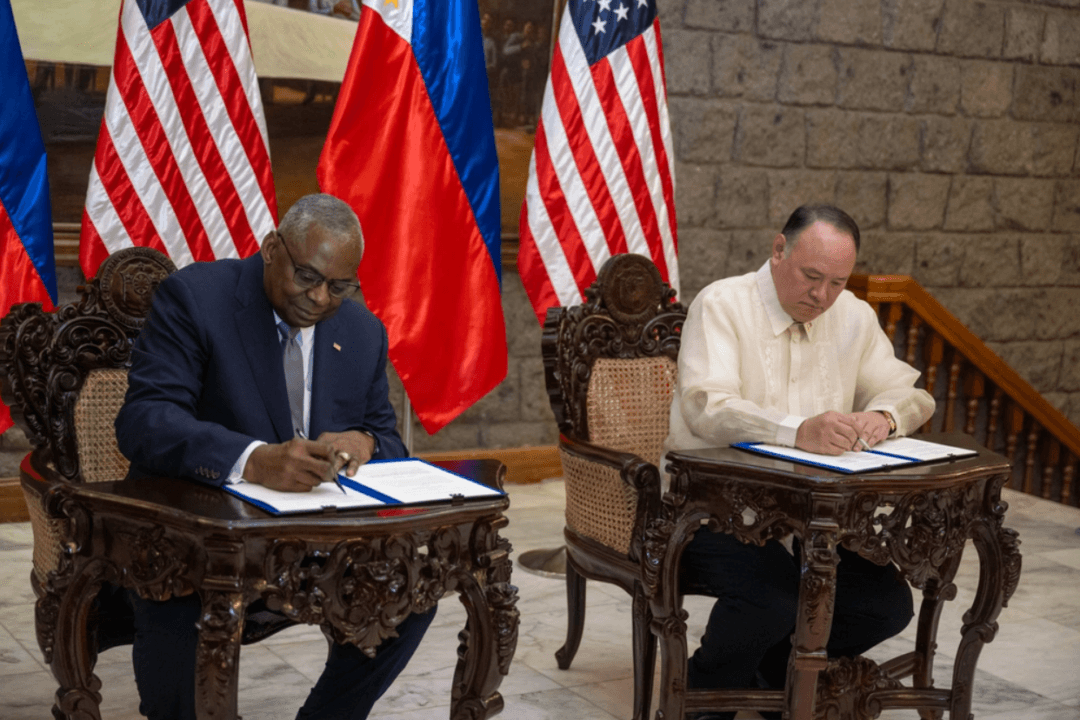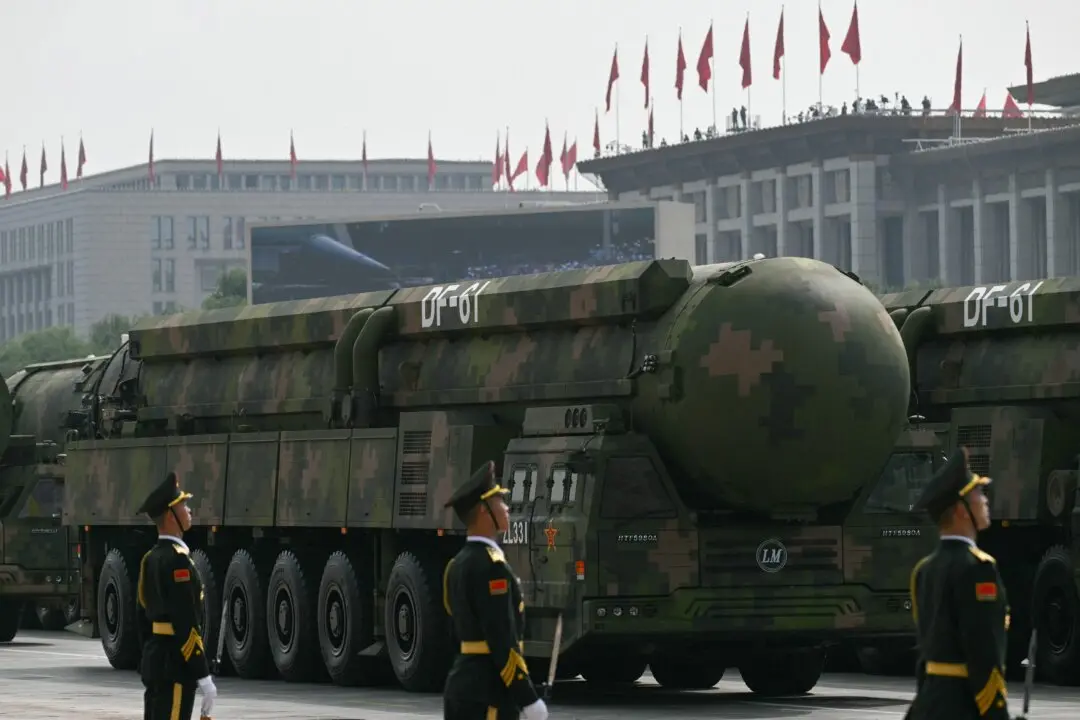The United States and the Philippines have signed a new military cooperation agreement to increase intelligence-sharing between the two nations and pave the way for Manila to receive more sophisticated U.S. weapons systems.
Defense Secretary Lloyd Austin and his Philippine counterpart, Gilberto Teodoro, signed the General Security of Military Information Agreement at a ceremony at the Camp Aguinaldo military base in Manila on Nov. 18.





